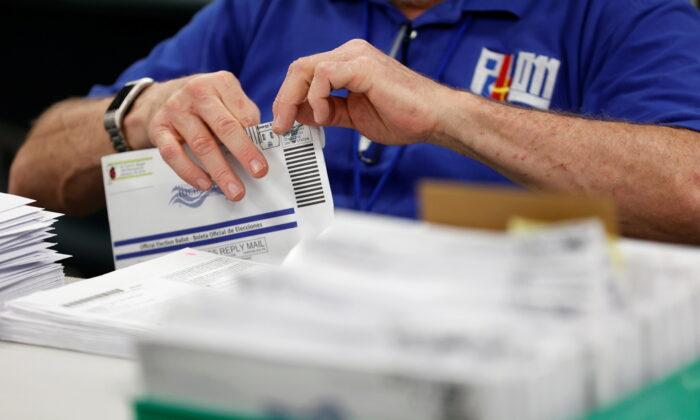North Korea might be capable of making a nuclear weapon small enough to put on its intercontinental ballistic missile, a top U.S. airspace defense official said. However, whether the regime can actually pull it off is another story altogether, some experts said.
It is believed that North Korea is trying to develop technology to put a miniaturized nuclear warhead on the KN-08, a mobile ICBM that was first displayed during a military parade in April 2012.
Recent comments from Adm. Bill Gortney, the head of the North American Aerospace Defense Command (NORAD), suggest the impoverished, communist regime has “the ability” to do it.
“Our assessment is that they have the ability to put a nuclear weapon on a KN-08 and shoot it at the homeland,” Gortney said at a Pentagon briefing, according to a transcript from the Department of Defense. “That is the way we think, and that’s our assessment of the process.”
He stipulated that U.S. officials “haven’t seen them test that,” referring to the ICBM. “But I don’t think the American people want us to—you know there are some things that they want us to make sure we edge on the side of conservatism to make sure we get right,” he added.
Gortley’s assertions come amid a report from the Los Angeles Times that said the United States has serious problems with its missile-defense systems. “If North Korea launched a sneak attack, the Sea-Based X-Band Radar—SBX for short—would spot the incoming missiles, track them through space and guide U.S. rocket-interceptors to destroy them,” the report states, but it adds that the “giant floating radar has been a $2.2 billion flop.”
At the same time, the project was a waste of taxpayer money and created a gap in the U.S. defense system. The Times investigation said the same amount of money could have been better spent on land-based radars.
But does North Korea actually have the capability carry out a successful attack on U.S. soil? It seems unlikely, said experts.
The main problem Pyongyang faces is actually getting a nuclear payload to be effective on an ICBM, said Jeffrey Lewis, the head of the East Asia Nonproliferation Program at the James Martin Center for Nonproliferation Studies, according to Defense News.
“It’s not that hard to shrink it down, but what happens is you start to encounter reliability problems, especially if it’s got a ride on an ICBM,” Lewis said.
And Elaine Bunn, the deputy assistant U.S. secretary of defense for nuclear and missile defense policy, told IHS Jane’s, “The reliability of an untested KN-08 is likely to be very low.”
Gortney explained that it’s “prudent” to take a cautious approach in planning for such a threat.
“I think they are getting the underlying intelligence assessments, which said they can make it small enough to fit on the missile,” Lewis said, referring to different agencies in the U.S. defense system. “They can’t say North Korea can’t do this, because that’s not what the assessment says. So it wouldn’t surprise me they say they have to assume it works,” he said.
North Korea has used missile launches as a show of force; South Korea and American officials see them as provocative acts.
On Thursday, the country again fired two surface-to-air missiles as U.S. Secretary of Defense Ash Carter arrived in Japan.
“If it was a welcoming message to me, I’m flattered,” Carter said of the launch, according to a Defense Department transcript.




